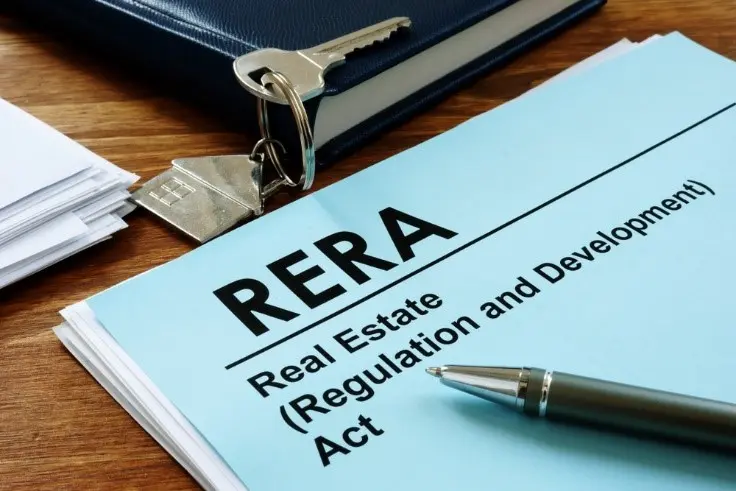The Indian real estate market has long been unregulated, with a lot of undelivered projects, false and misleading marketing campaigns, and a lack of financial planning. The need for a comprehensive legal framework led to the emergence of the Real Estate (Regulation and Development) Act, or the RERA, in 2016.
Before the introduction of RERA, developers controlled most of the interests in the Indian real estate business. Buyers could only rely on the information that was provided by developers. RERA Maharashtra emerged as one of the most proactive implementations of the Act. Here, we’ll discuss the impact of RERA and how it has transformed the real estate industry.
What is RERA?
RERA is an abbreviation of the Real Estate (Regulation and Development) Act, 2016, which is landmark legislation enacted by the Indian Parliament to regulate the real estate sector. It seeks to safeguard the interests of home buyers and mandate property registration and fair practices, like selling by carpet area.
RERA was enacted in March 2016, and the central government notified all of its sections on May 1, 2017, with some being notified in May 2016. However, this was decentralised, and each state could have its own Real Estate Regulatory Authority. These organisations are charged with the responsibility of providing registration of projects and also with settling disputes and building compliance.
The implementation timeline of states also differed, but Maharashtra stood out not only in establishing a fully operational authority, MahaRERA, but also in implementing the rules in letter and spirit and hence became one of the most efficient states in the country in implementing the RERA.
What was the reason behind the introduction of RERA?
The introduction of RERA was due to the growing number of consumer complaints as well as the desire to instill sanity and justice in the real estate industry. It has the following important objectives:
- Facilitating disclosure and openness in the sale of apartments and plots.
- Delivering the projects to the homebuyers well within the stipulated deadlines.
- Avoiding the misuse of funds as used by the developers in the escrow account system.
- Giving a fast-track dispute redressal mechanism.
- Increasing the confidence of investors through legal responsibility.
The law aimed to eliminate widespread malpractice and establish a balanced relationship between the buyer and the builder, introducing professionalism and trust to the market.
What RERA Offers: Features and Benefits
RERA comes with a series of features that are beneficial to both buyers and builders. These include:
- Mandatory Registration: All real estate projects and agents should obtain registration with the respective state RERA to start sales.
- Standardized Definitions: Definitions of items like carpet area are clearly stated, and this removes the uncertainty, and fairness in prices is observed.
- Escrow Accounts: Developers have been required to put 70% of the funds in a special escrow account that can only be used in that specific project.
- Regular Updates: The developers have to provide periodic updates on the progress of the construction on the RERA site.
- Grievance Redressal: RERA mandates the establishment of fast-track tribunals and regulatory authorities to resolve complaints within 60 days of filing.
- Non-Compliant Penalties: RERA is strict on developers who violate the provisions, and such developers have to face heavy penalties and imprisonment.
Read Also: Mumbai’s Luxury Real Estate Outpaces Global Markets in 2025.
RERA Implementation Across States
India found it necessary to establish the RERA authority in each state and union territory.
What Makes RERA Maharashtra Special?
MahaRERA can be deemed to be the most effective and clear of all state RERA agencies. It has also recorded the most projects registered and real estate agents, plus disposed of thousands of complaints.
The online portal can easily be accessed by the general population, and it displays project details, legal documentation, schedules, and the history of complaints regarding projects managed by RERA Maharashtra. This digital-first strategy has enhanced transparency and trust among users.
Visit the RERA Websites
Anyone can access the official sites of the respective RERA bodies of states to confirm the registration of projects, check on their development, or file complaints. For instance, a few official RERA websites of different states are mentioned:
Maharashtra: https://maharera.maharashtra.gov.in/
Karnataka: https://rera.karnataka.gov.in
Uttar Pradesh: https://www.up-rera.in
Implications for Developers and Builders
RERA has changed how real estate developers do business in India. The legislative acts translate to accountability. The builders are held more accountable in terms of time, quality, and legal use of the customer’s money.
With the provision of an escrow account, the project funds are no longer diverted; thus, delays are reduced, and money is utilised for the intended purpose. A stiff penalty for delay ensures that the developers are more concerned about delivering a quality project on time.
An expanded burden of compliance has led to market consolidation, and it can be confirmed as reliable. This compliance has, however, added to operational costs, leaving some of the smaller players to close up or join other bigger companies.
Benefits for Homebuyers
With the homebuyers, RERA has become nothing less than a game-changer. The buyers have valid and timely information on the progress of the projects, as there are paybacks and other compensations for any delay.
Standardised carpet area prevents the deception of buyers by the exaggerated figures of built-up areas. The buyers now have a facility to lodge their complaints online through RERA.
RERA has given buyers legal protection, where they can take their cases to the authorities seeking legal help in a fast and efficient manner.
How Does RERA Approve Projects?
RERA approves real estate project applications by evaluating each one through a step-by-step approval process.
- Submission of Application: Developers must submit an application along with legal title documents, approved plans, and other necessary approvals.
- Escrow Account Declaration: Proof of a dedicated escrow account must be provided as part of the application.
- Payment of Fees: Registration fees vary depending on the type and scale of the project.
- Scrutiny and Verification: The authority reviews all submitted documents to verify their authenticity and ensure regulatory compliance.
- Approval and RERA Registration Number: Upon successful clearance, the project is granted a unique RERA registration number, without which it cannot be marketed or sold.
Read Also: Why Clear Titles and Legal Checks are Essential in High-End Real Estate
Final Thoughts
The RERA Act has significantly changed the Indian real estate market. RERA Maharashtra has made a particularly significant contribution and has become a benchmark for implementation, transparency, and enforcement.
RERA has given hope and ground to home buyers and investor communities. If you want to invest in an RERA-approved project, you should look at the pioneers in the field, like Rustomjee, which not only offers RERA-compliant residential properties but is also known for quality and timely delivery.
FAQs
- What does approval mean for a real estate project?
Buyers and investors consider a RERA-approved project more credible and trustworthy. It ensures that the property is legal, all the approvals are covered, and the money is not spent on other projects. It also entails that the buyer is legally covered in the event of delay or fraud.
- How can I verify whether a project is registered on the RERA website?
Go to the website of the RERA of the state you live in, type the developer’s project or registration number in the search box, and you will get all the information about a particular project, such as timelines and complaints.
- What are the greatest advantages of RERA Maharashtra over other states?
A proper and transparent online interface, quick grievance redressal, tight supervision, and the largest number of registered projects have made MahaRERA one of the leading real estate regulatory authorities in India.








